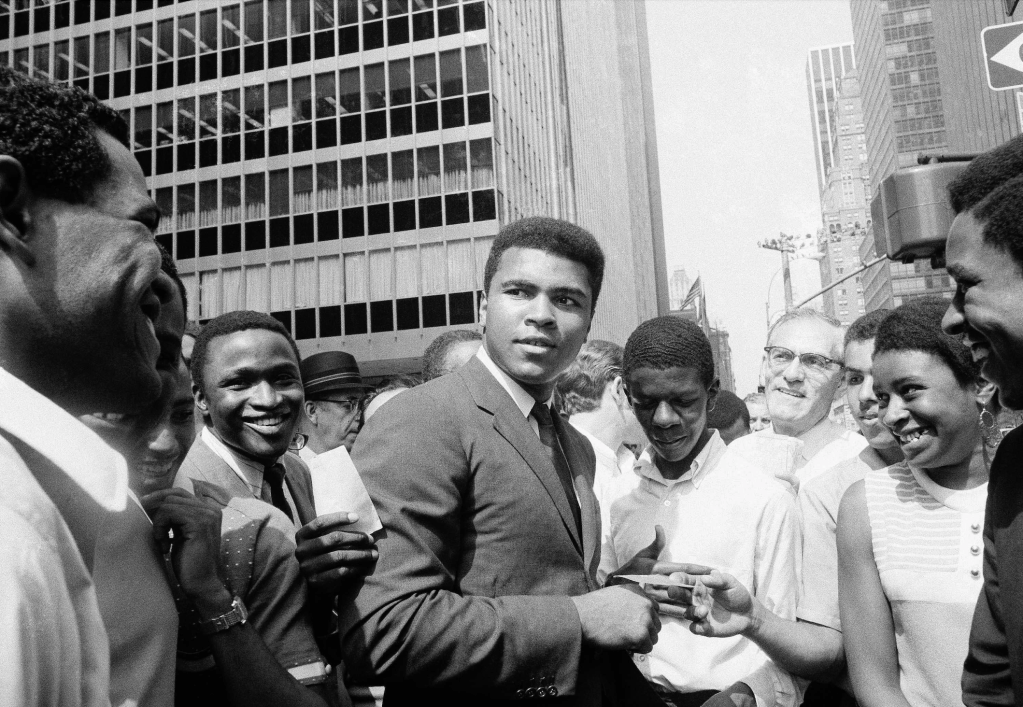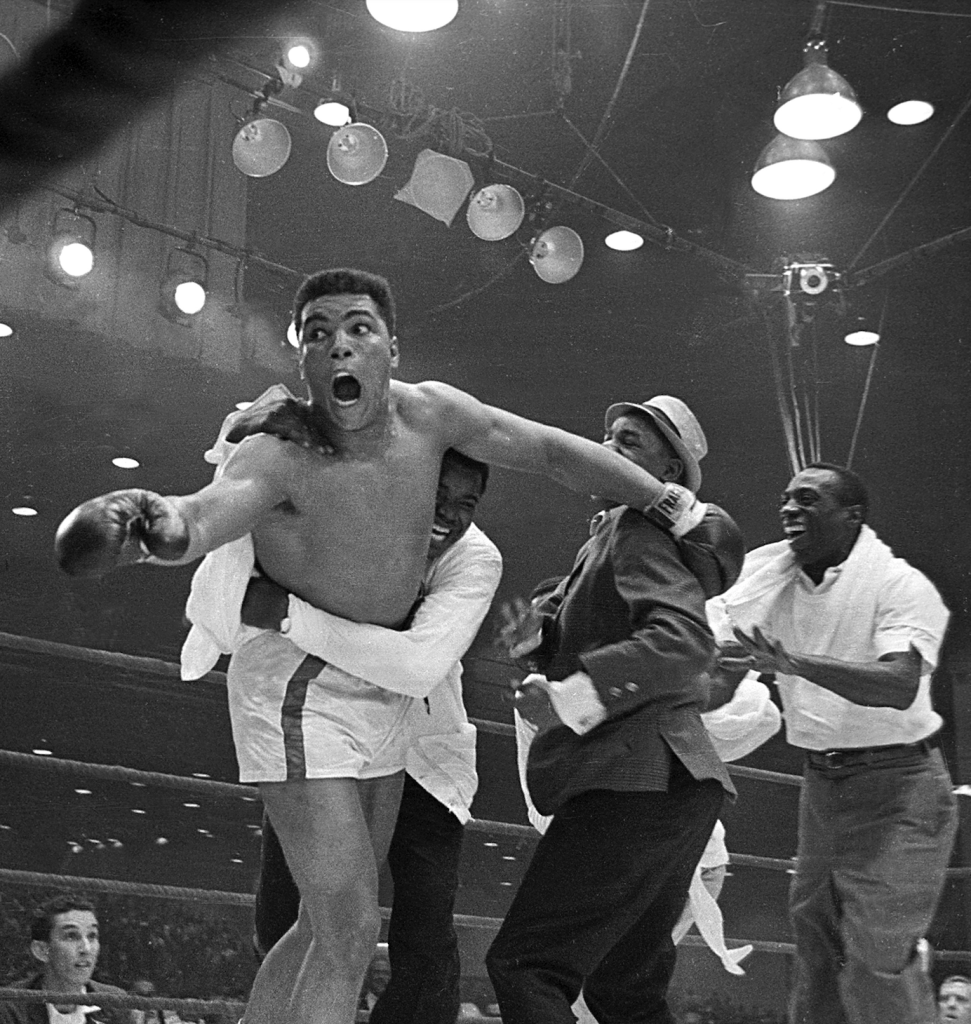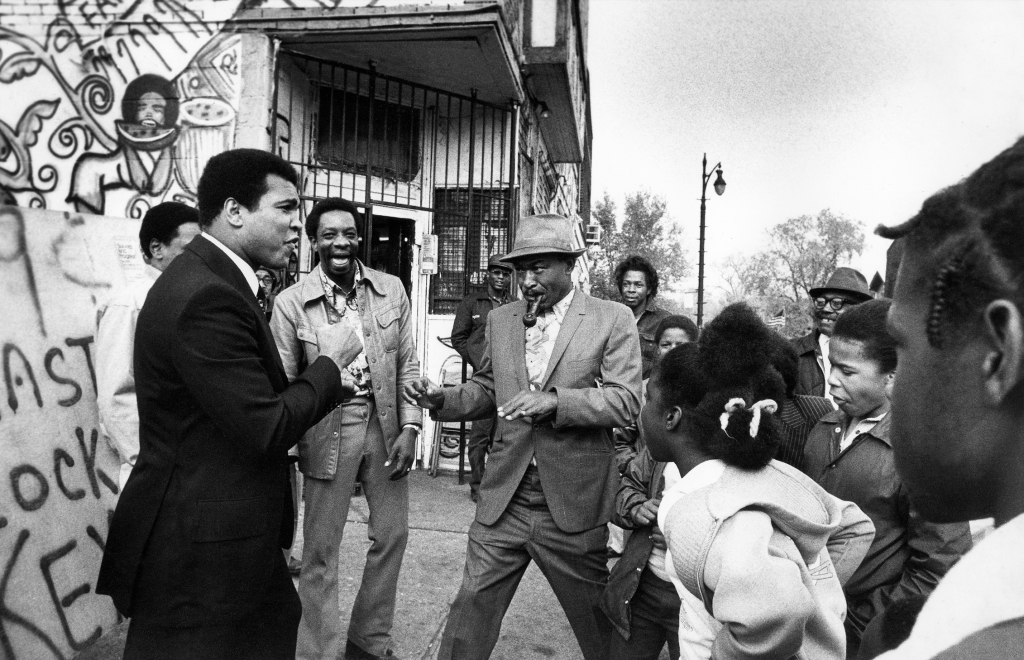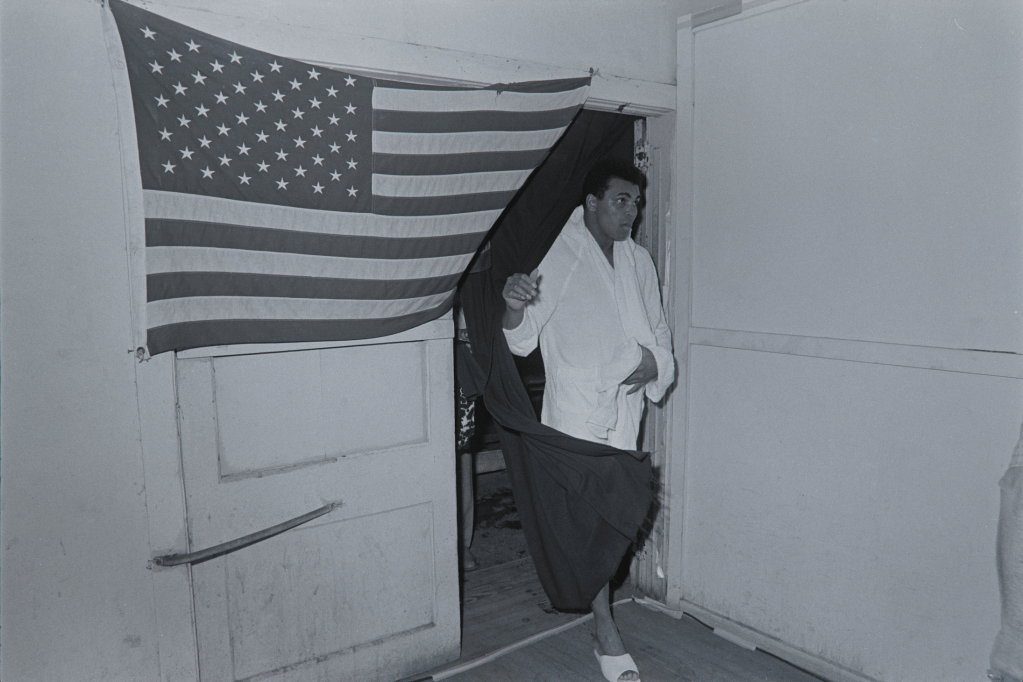
Source: PBS / PBS
From September 19-22, at 8:00 p.m. ET, PBS will air Ken Burns’ new four-part documentary, Muhammad Ali. As we approach the 80th anniversary since the birth of “The Greatest” and five years since his passing, many wonder where he would have stood in today’s times. His fantastic accomplishments in the boxing ring cannot compare to his legacy of humanitarianism and goodwill outside of it.
CASSIUS had the opportunity to speak with his daughter Rasheda Ali-Walsh, who was involved in the making of the documentary, and we covered the many differences between the pugilist and icon known to the world as “The Greatest” versus the man she lovingly called “Poppy.”
CASSIUS: Ken Burns is a documentarian, esteemed for his coverage and in-depth perspective on various moments throughout history. And your father’s life has been covered numerous times in different media. Why did you choose to be a part of this specific project versus the many other ones in the past? And what new things about your father do you think viewers will learn about him?
Rasheda Ali-Walsh: I was approached by [filmmaker and Ken’s daughter] Sarah Burns back in 2018 early in the production process. What attracted me to this project was her desire to do a comprehensive story about my father not only as a boxer but also a Muslim, a father, brother, husband, poet, patriot, and an ambassador of peace. I think viewers will learn that my father was not perfect but was sincere, sensitive, forgiving, and extremely kind to others and forever growing and evolving into a better human being.

Source: PBS / PBS
CASSIUS: Your dad was outspoken about civil rights. It arguably defines his legacy, beginning with his transition from Cassius Clay all the way through today. The world at large is having a great shift/ conversation with regard to civil rights as well, for all demographics.
As an activist and his daughter, how do you feel about various movements invoking his legacy, from BLM to right-wingers to family members taking a stance counter to yours?
Rasheda Ali-Walsh: I am deeply honored and proud that my dad served as an inspiration and role model for others, creating movements today that encourage them to show confidence, conviction to stand up for their beliefs, and putting action behind their words to make a difference.
CASSIUS: Your father was 18 years old when he won the gold medal at the 1960 Summer Olympics, three years younger than your son Nico is today. And he notched his first win in his debut wearing shorts given to him by his “Poppy.” Nico also did tell SkySports, however:
“I am trying to make my family proud and my grandfather proud. There is no pressure to honor my grandfather. But I do feel the pressure to make my family proud.”
What are some of the pressures that come with carrying the Ali name, seen and unseen? How much of your father do you see in your son? And do you think that your son will be asked to walk in grandfather’s footsteps, whether he wants to or not?
Being Muhammad Ali’s offspring comes with many blessings but also carries many challenges.
Rasheda Ali-Walsh: The Everlast trunks Nico wore for his pro debut were ones that my dad’s former manager gifted to Nico as a way to remember Poppy and be inspired while fighting. Being Muhammad Ali’s offspring comes with many blessings but also carries many challenges. We will never be in any position, boxing or otherwise, and not get compared to our father.
This honor also carries with it many misconceptions, expectations, and pressures. We will fail and make mistakes, like our father before us. As long as we understand that what makes a person is one who is constantly learning and becoming a better, more understanding, giving, and loving human being. You don’t have to be Muhammad Ali’s daughter, son, or granddaughter, or grandson to realize that.
I see a lot of my father in both of my sons. They’re very kind and giving and show compassion towards others. Nico will most likely be asked to walk in his grandfather’s footsteps, but keeping the legacy alive is a huge responsibility and one, like myself, have embraced with honor and eagerness.
CASSIUS: Muhammad Ali is always portrayed as a very complex personality: a peace-loving man who made his name in a brutal sport and was very “braggadocious,” although many close to him also characterized him as humble and very conscientious. Joking and light-hearted at times, mocking and considered downright cruel at others.
We fans are more familiar with the legend of the man, but what are some stories you can share that would allow us “a peek behind the curtain” and into a Muhammad Ali most people likely never knew existed?

Source: PBS / PBS
Rasheda Ali-Walsh: My dad was always “putting on a show” before, during, and after the fight. As a professional boxer, way ahead of his time, he wanted people to pay the price of admission to come watch boxing matches at a time when the sport wasn’t that popular amongst the masses. And he succeeded.
Whether you loved him or hated him, you paid for a ticket. He promoted himself and the sport before there were PR companies representing athletes. But the father we know well, especially in his retirement age is one who was extremely funny and charismatic at home with us. Making us laugh, showing us his latest magic tricks, asking us to read passages from the Holy Q’uran, and talking about life’s purpose.
We saw our father as one who also jumped at an opportunity to help a cause. He never said “No” to a photo or an autograph.
He also loved watching old Westerns and Elvis Presley movies, but most of all, he loved watching his old fights and footage of him clowning around with Howard Cosell. He also played piano, and from my recollection, he only knew how to play one or two tunes. He loved singing Little Richard, “Tutti Fruity” and Sam Cooke, “Stand By Me.” He was so much fun to hang out with, more like an older brother than a father.
He also led by example. We saw our father as one who also jumped at an opportunity to help a cause. He never said “No” to a photo or an autograph. He considered every eager fan wanting his signature (whether they wanted to quickly sell it fast on eBay or not) as an opportunity to receive a blessing. My father loved being Muhammad Ali.

Source: PBS / PBS
CASSIUS: Your father accomplished many things in boxing and as a statesman. And even through his bout with Parkinson’s disease, he always kept his charm and fighting spirit. You’re a self-professed Daddy’s girl, and I appreciate that you wrote I’ll Hold Your Hand So You Won’t Fall in your mid-30s. How do you think working with your father through his condition changed him for the better, as well as your relationship with him?
Service to others is the rent you pay for your room in Heaven.
Rasheda Ali-Walsh: In my opinion, I deeply feel that my father’s skills and abilities in the ring were legendary, but his stance against the Vietnam War, racism, conversion to Islam, and most of all, his toughest battle with Parkinson’s disease has earned him Iconic status. He felt, despite the challenges of Parkinson’s disease, he could uplift yet another group of people who needed his help to create awareness and funds to find a cure for PD and other Neurocognitive conditions.
Having the opportunity to write my children’s guide to Parkinson’s disease with the inspiration and assistance of my children and father has been an incredible honor for me. Working with my father and sharing this message of hope has been a gift that will I will cherish for the rest of my days.
While writing the book, I not only learned a lot about myself, but I learned even more about my dad and why I call him “Superman.” My dad has inspired me to never let circumstances, trials, and tribulations get the better of you. He never worried about things outside of his control and practiced his advice daily to live each day to the fullest extent possible. That is what my father did.
CASSIUS: Lastly, those of us on the outside know Muhammad Ali as the legendary boxer, global icon, civil rights figure, etc., but you knew him more intimately as a father. After we watch the upcoming PBS documentary in September, what would you like people to remember the most about your dad?
My dad has inspired me to never let circumstances, trials, and tribulations get the better of you.
Rasheda Ali-Walsh: My dad said he wanted to be remembered as someone who served others and treated others with kindness. “Service to others is the rent you pay for your room in Heaven.”
My dad’s legacy would be the poem he loved so much regarding how he lived his life and how he would like to be remembered, “Recipe For Life”:
“I’d like for them to say he took a few cups of love. He took one tablespoon of patience, one teaspoon of generosity, one pint of kindness; he took one quart of laughter, one pinch of concern. And then, he mixed willingness with happiness. He added lots of faith, and he stirred it up well. Then he spread it over a span of a lifetime, and he served it to each and every deserving person he met.”
That quote now lays on my dad’s grave marker because it sums up the way my dad lived his life.
















